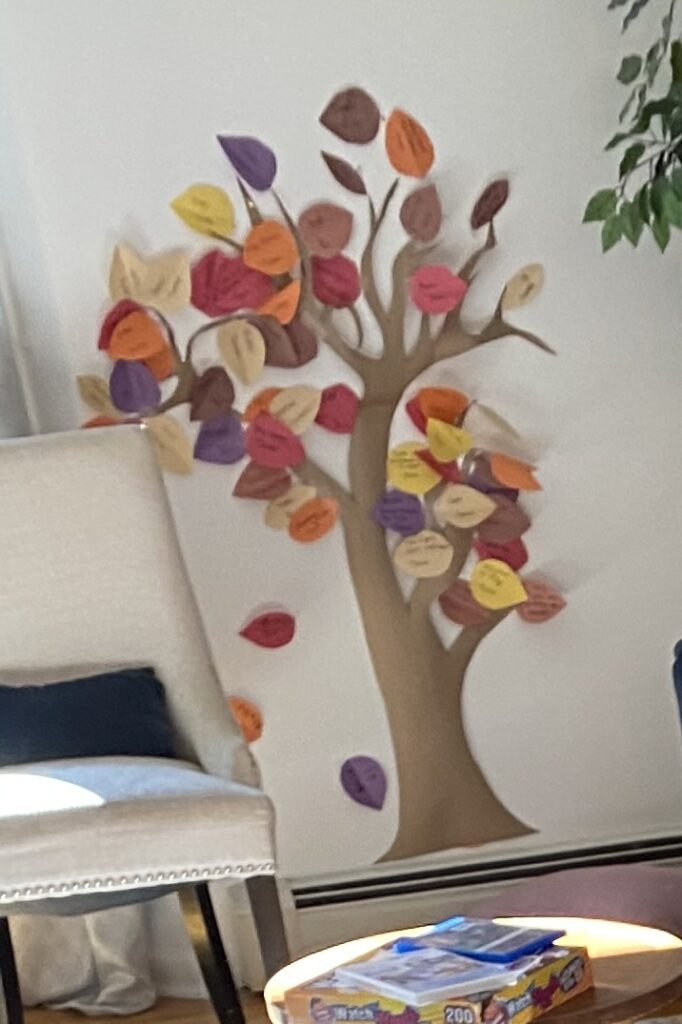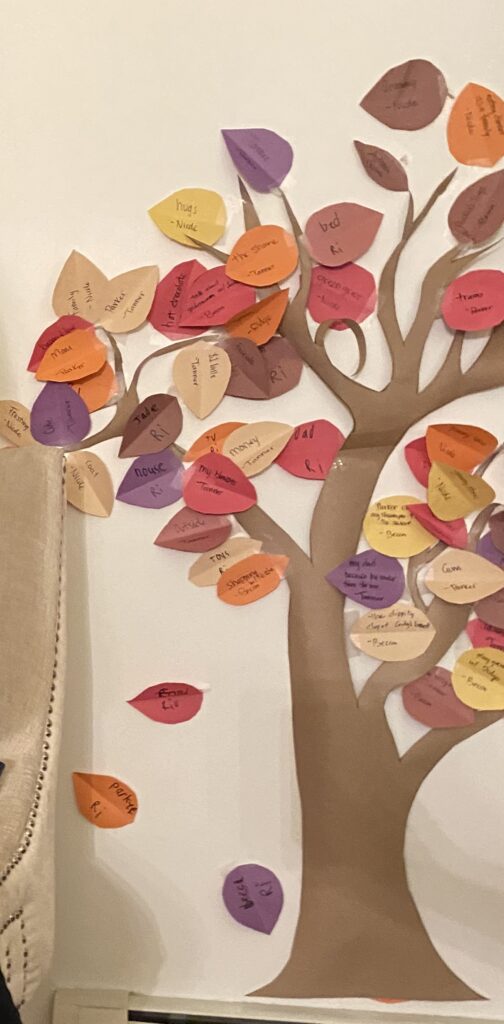We’re a few days away from Thanksgiving here in the US, so gratitude has been on my mind. My wonderful wife introduced a new tradition in our family a few years ago: a gratitude tree. A few days after Halloween we hold a family night where we employ the ample art skills in our family (ok…mostly centered in my wife and my daughter) and we create a “gratitude tree.” It’s basically a brown paper cutout tree trunk and branches that gets taped up in our living room. From there we cut out red, yellow and orange leaves, write what we’re grateful for, and then tape them up to the tree. The end result is a fun decoration and a great reminder of all the things we have to be thankful for.



While this is a great activity for us as a family, it got me thinking about the benefits of gratitude. Which then sent me down an internet-research-rabbit-hole. I think we all instinctively know gratitude is a good thing, but it can be hard to quantify exactly why it’s a good thing. Here’s a summary of the highlights to the benefits of gratitude:
1. Gratitude can refocus us away from negative thoughts and emotions
I’ve always believed our mind is like a stage, and only one act can perform at a time. So while we are focusing on things we are grateful for, it invites in positive thoughts which in turn block out negative thoughts. This UC Berkeley paper supports this position. (1)
2. Gratitude releases the happy chemicals in our brain
This study found that “that gratitude causes synchronized activation in multiple brain regions, and lights up parts of the brain’s reward pathways and the hypothalamus. In short, gratitude can boost neurotransmitter serotonin and activate the brain stem to produce dopamine.” (2) And who wouldn’t want a bit more of the pleasure chemical from natural and healthy sources?
3. Gratitude makes you physically more healthy
The same study shows that gratitude reduces stress hormones which increases metabolism, improves sleep, and reduces inflammation which could result in reduced risk of heart failure. (2)
And there are more benefits. But these are all focused on the personal benefits. What benefit does gratitude have for a work team? For that I turned to my good friends at Motivosity, a company dedicated to improving the employee experience through gratitude. They’ve run study after study and the results are unsurprising: gratitude in the workplace is a good thing. But “how good?” you might ask. Their research found that “…employees working in a gratitude-centric environment reported the most significant increases in feeling appreciated at work (182%), company loyalty (134%), and positive workplace relationships (106%).” (3)
Building on that, their research found that employees in that gratitude-centric environment had a “196% increase in employee net promoter scores (eNPS).” (3)
To increase eNPS, increase gratitude in the workplace. To increase gratitude, below are some practical tips that may help any manager or team:
Remember to say thank you, and be specific
Yes, it’s someone’s job to do the work, but thanking them for specific aspects of the work team members do goes a long way.
Build praise into team meetings
Whether it’s “kudos”, or “shout-outs,” or whatever you want to call them, let team members publicly praise others on the team.
Be public in your praise on electronic channels
Slack, Teams, WebEx, or however else your team stays connected digitally, use that platform to share kudos. And be regular about it, one time is not enough.
Be sure to magnify wins upward and outward
Did your team do something awesome? Let your boss and your peers know.
Give some type of reward
Many companies have internal recognition programs already built into the budget. But if funds are tight, things like extra PTO, an early Friday, or even an old fashioned hand written note definitely will make an impact.
So this Thanksgiving, lean into gratitude. Your mood, your body, and your team will all thank you. And most likely, your results will as well as everyone is working a bit harder due to all the positive vibes.
- Brown, J. J., & Wong, J. J. (2017, June 6). How gratitude changes you and your brain. Greater Good. (Link)
- Zahn, R., Moll, J., Paiva, M., Garrido, G., Krueger, F., Huey, E. D., & Grafman, J. (2009, February). The neural basis of human social values: Evidence from functional MRI. Cerebral cortex (New York, N.Y.?: 1991). (Link)
- (2022, November 14). Gratitude in the workplace: 5-Year study. Retain top talent longer with an unforgettable employee experience. (Link)
